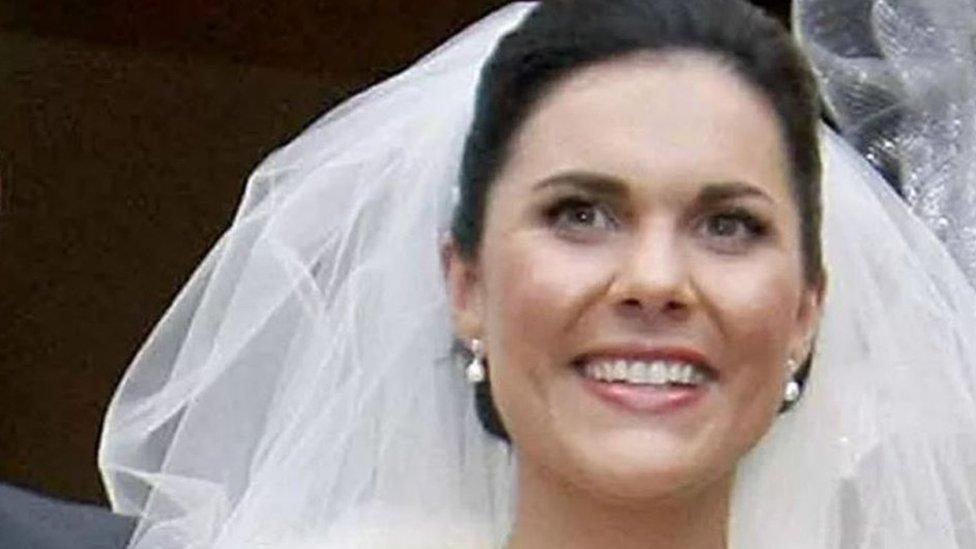Michaela McAreavey: Three to be prosecuted over mocking video
- Published

Michaela McAreavey was killed while on honeymoon in Mauritius in 2011
Three people are to be prosecuted over a video which contained the singing of a song which mocked the killing of Michaela McAreavey.
They will be prosecuted for the offence of "stirring up hatred", according to the Public Prosecution Service (PPS).
Ms McAreavey, a 27-year-old Irish language teacher from County Tyrone, was killed while on honeymoon in Mauritius in 2011.
The video was filmed and live streamed in an Orange Hall in Dundonald.
Seven people were reported to the PPS after the video circulated online in May 2022.
Senior public prosecutor John O'Neill said: "After a thorough consideration of all evidence it was concluded that there is a reasonable prospect of conviction in relation to three of those reported."
Mr O'Neill said the PPS had informed relevant parties of the decisions, including the McAreavey and Harte families.
Ms McAreavey was the daughter of Gaelic Athletic Association (GAA) football manager Mickey Harte.
She was found strangled in a bathtub at her honeymoon hotel 12 days after her wedding.
No-one has been convicted over her death.
Insufficient evidence to prosecute
The PPS said four of the seven suspects it examined would not be prosecuted because the evidence against them was insufficient.
For one of them, the PPS said it could not identify the individual as being a part of the group in the video.
Another two who were reported as aiding and abetting those that took part by clapping along and laughing in the video were not prosecuted as evidence suggests they "were not known to those who engaged in the singing of the song".
A PPS statement added they had both "not heard the song before or been made aware of its lyrics in advance".
A fourth person suspected of improper use of a public communications network after the video was live streamed was not prosecuted as the PPS decided there was insufficient evidence to prove they had been not aware of the content of the song at the time of broadcasting.